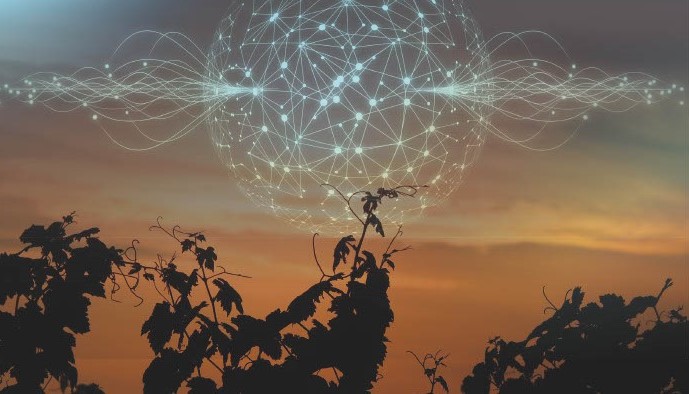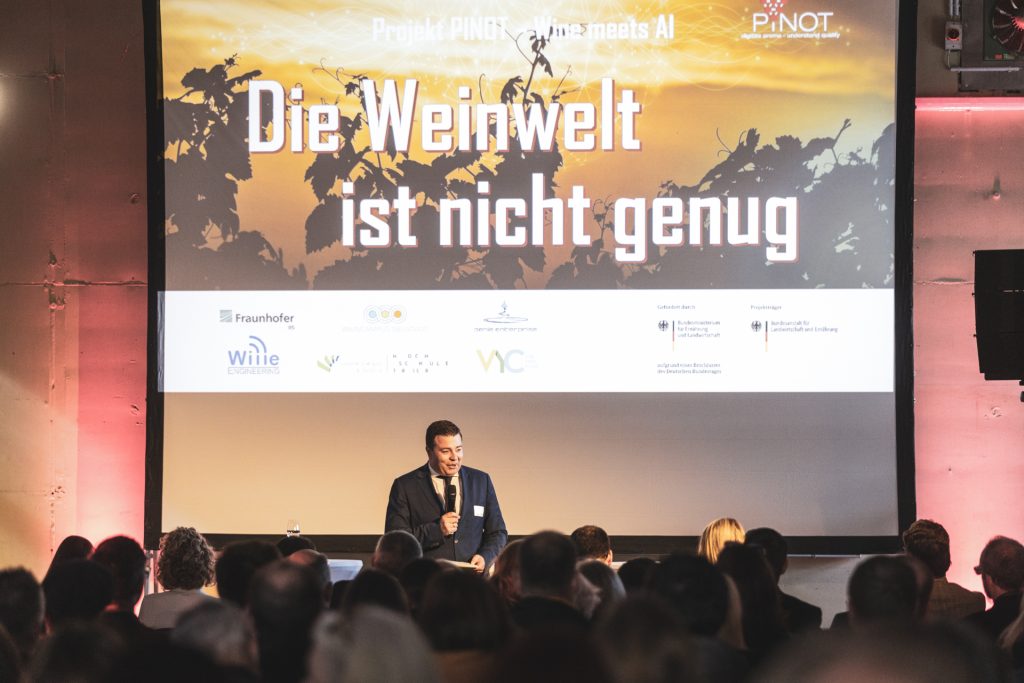
On Tuesday, April 23, 2024, the event “The wine world is not enough: Wine meets AI” took place in the wine press house of the Staatsweingut Johannitergut at the Dienstleistungs-zentrum Ländlicher Raum (later called DLR) in Neustadt an der Weinstrasse under the auspices of the PINOT project funded by the Federal Ministry of Agriculture and Food Germany (Bmel).
The wine press house of the Johannitergut state winery at DLR Rheinpfalz became the setting for a James Bond-like “crime scene”. Two worlds collided – the craft of winemaking and new technologies such as artificial intelligence. Can these two seemingly contradictory industries be successfully married? With AI-created background music, dramatic lighting of the wine presses and Blanc de Noir sparkling wine from the Staatsweingut (shaken not stirred!), the roundabout 90 guests were put in the right mood for the evening. Prof. Dominik Durner, consortium leader of the PINOT project, wanted to think outside the box and moderated this thoroughly controversial event in a witty and provocative manner. With wine expert Janina Huber and digitalization expert Alisa Türck, the Weincampus was able to attract two outstanding representatives of their industry for two very educational and entertaining presentations.
Janina Huber said: “The wine industry can definitely benefit and should face up to the changing zeitgeist of wine consumption.” In her presentation, Ms. Huber used a fictitious situation in the year 2044 to address the wishes of future generations and outlined realistic scenarios that make AI indispensable. Ms Türck stated: “AI and digitalization have established themselves unnoticed in our everyday lives and nobody wants to do without them anymore. Reservations in the wine industry are understandable, but the digitalization trend is unstoppable.”
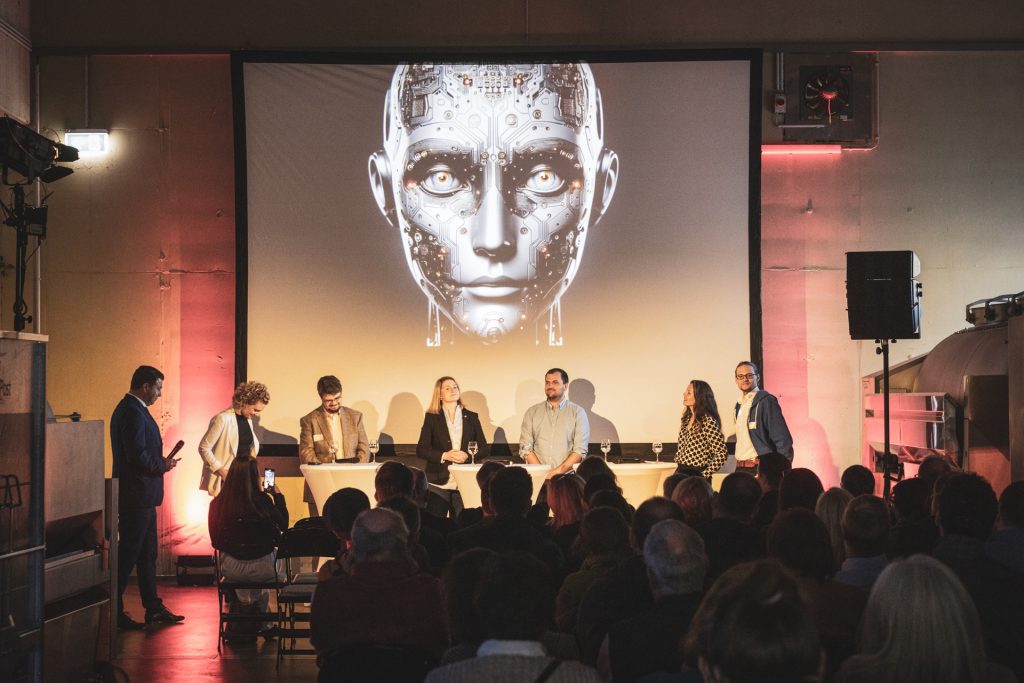
The research film of the PINOT project in James Bond trailer style, shown for the first time was enthusiastically applauded and received as a great success.
A panel discussion with representatives from the winegrowing and IT sectors, involving the audience, showed mostly restrained support for opening up this traditional profession to new technologies, but also a small group of hardcore sceptics, including the winegrower Karl Rummel, who was on the panel. Mr. Rummel runs the well-known Rummel organic winery and expressed his concerns: “If we do away with wine specialists and hire IT specialists to monitor the process instead, I have a hard time understanding this change.”
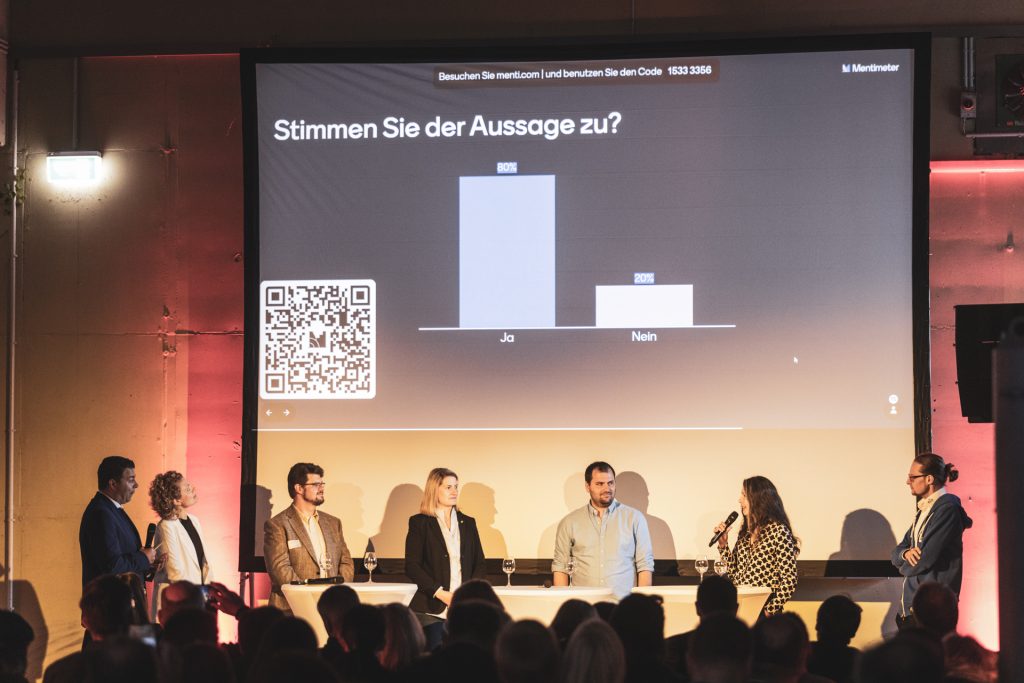
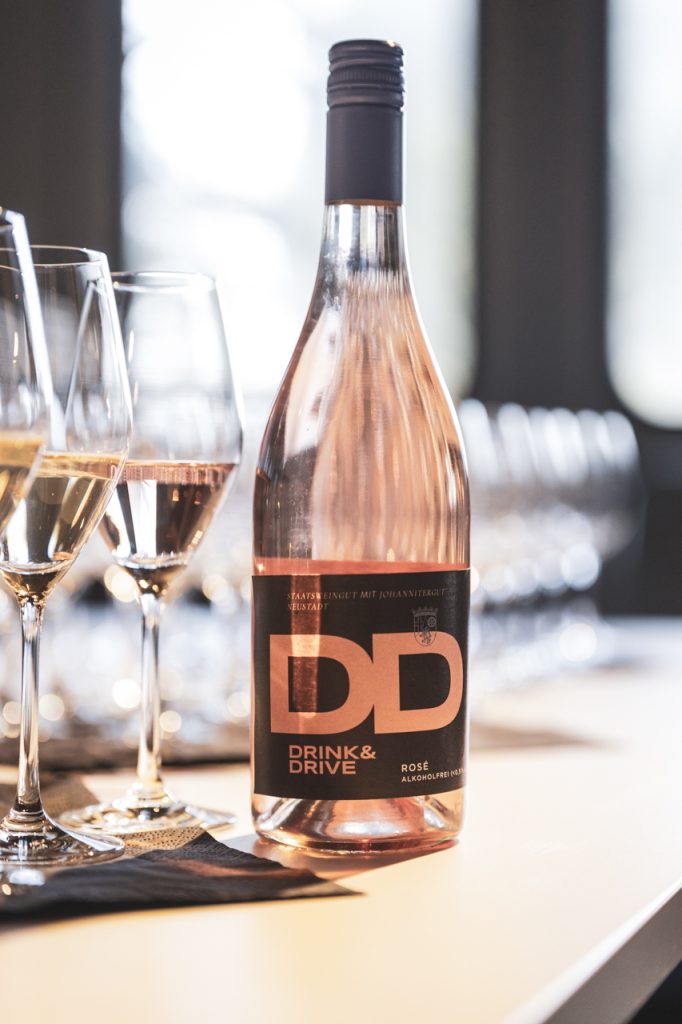
The general conclusion that can be drawn from this event is a predominantly cautious approval of AI in viticulture. The German winegrower will not be a pioneer of new technologies; this still young “marriage” must continue to prove itself. However, research continues unabated according to the motto: Tomorrow never dies! We hope and expect further ground-breaking research results in the field of digitalization, which will save the German wine industry time and money while at the same time taking climate change into account, compensating for the lack of skilled workers and helping to remain internationally competitive.
